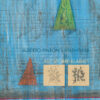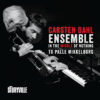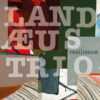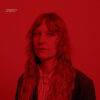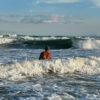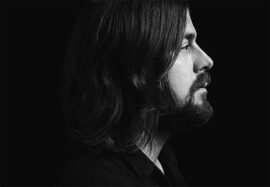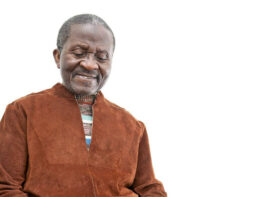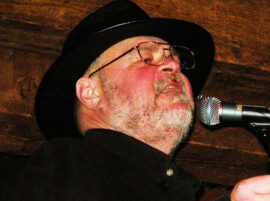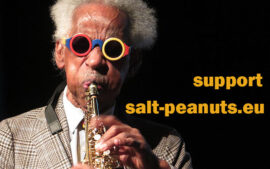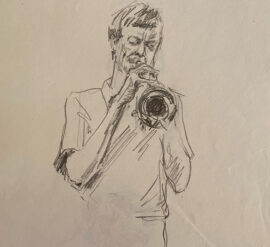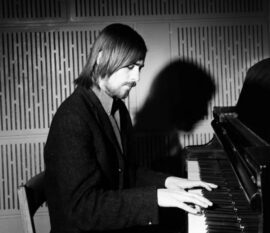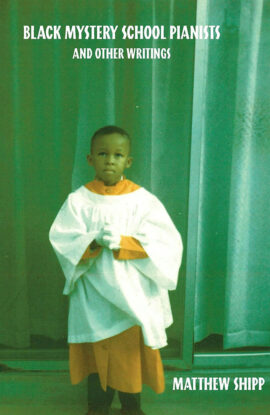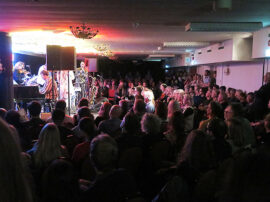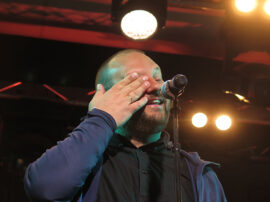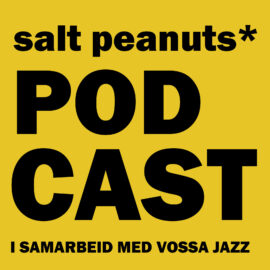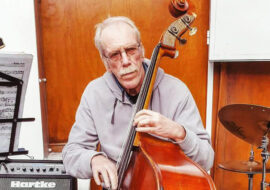
Two years ago, prolific Norwegian drummer Paal Nilssen-Love released the retrospective box-set of the short-lived but eventually legendary The Quintet («Events 1998-1999», PNL, 2019) from the late 90s. The Quintet documented the meeting of two generations of the Norwegian improvised free scene – the pioneer one of sax player Carl Magnus ‘Calle’ Neumann and double bass Bjørnar Andresen, and the up and coming one of Nilssen-Love, guitarist Ketil Gutvik and double bass player Eivind Opsvik.
Andresen passed away in 2004, but for the release party of the box-set Neumann once again got together with Gutvik, Nilssen-Love, Opsvik and a second double bass player Per Zanussi. It was already clear then to Nilssen-Love, Gutvik and Neumann, now 76 years old, that there was something special in this reunion, much more than a one-off to promote a release. One year later a new line-up emerged, now with Ingebrigt Håker Flaten on double bass, and as Nilssen-Love notes about his soul brother, you don’t need two bass-players with Håker Flaten in the band. The original, incarnated quintet became a quartet, ready for a new dance in a new decade.
«New Dance» is the debut album of the self-titled quartet, recorded at Nasjonal jazzscene, (National Jazz Scene) Victoria in Oslo in July 2020, in the midst of the covid-19 pandemic. This quartet recorded itself before and intended to release a studio album, but this performance was so special that it was clear that it represented best the new outfit. The new quartet followed the democratic spirit of The Quintet, as well as its trusted recipe of letting the music happen with no prescriptions.
This reunion of these kindred spirits also celebrates Neumann’s first new recording in more than a decade, as well as the rare opportunity to perform before a live audience during the pandemic. It is clear from the first seconds of this performance that these strong-minded improvisers feel at ease with each other and are ready for the coming sonic adventures. The title of the opening piece «Å så et Frø» (to sow a seed in Norwegian) expresses faithfully the spirit of the performances. Patiently, first Gutvik and later Neumann trigger the quartet to weave a nuanced, lyrical puzzle, until it settles briefly on a hypnotic, powerful pulse of Håker Flaten and Nilssen-Love.
The 30-minute, title-piece is introduced by a brilliant, intense drums solo of Nilssen-Love that sets the tone for a series of extended improvisations. The following improvisations highlight the unstoppable rhythmic drive of Håker Flaten and Nilssen-Love, together and alone, and the distinct voices of Neumann, always passionate soulful, and Gutvik, in a total free-idiomatic mode, again, together and alone, and with a sense of compassionate humor. The quartet moves organically between full-on blasts to quiet and subtle passages of reserved beauty. Finally, Nilssen-Love leads Gutvik and Håker Flaten to the powerful coda.
Håker Flaten opens «Det er Kjærlighet» (it is love, in Norwegian) with a beautiful, lyrical bass solo but soon leads a passionate, powerful interplay with Gutvik, Nilssen-Love and Neumann, and letting Gutvik conclude it with another beautiful melody. Only on the last «Dett var Dett» (that’s it, in Norwegian), the quartet goes for a full-on cathartic blast, pushed by Nilssen-Love with another masterful display of his manic, energetic drive, that alone can electrify countless antibodies against the pandemic and make them dance many new dances.
Eyal Hareuveni
Carl Magnus Neumann (as), Ketil Gutvik (g), Ingebrigt Håker Flaten (b), Paal Nilssen-Love (dr, perc)


